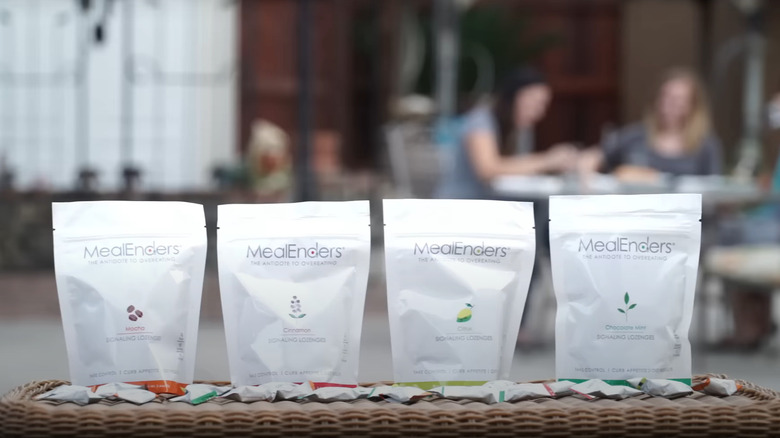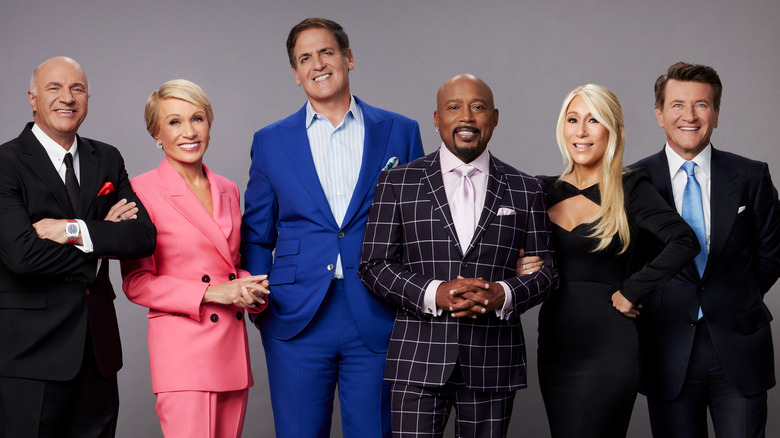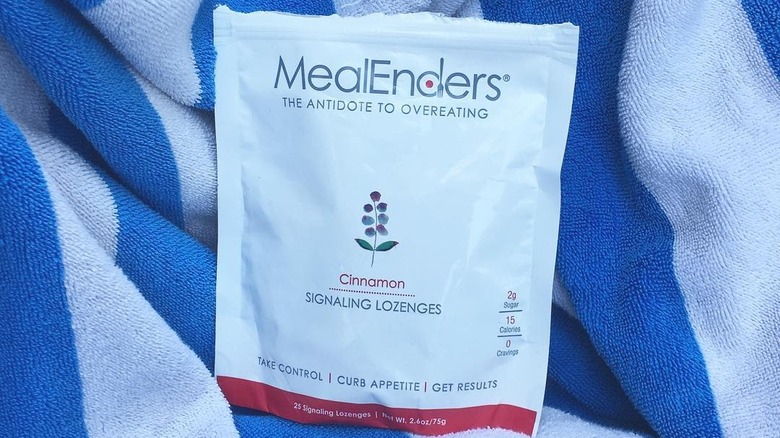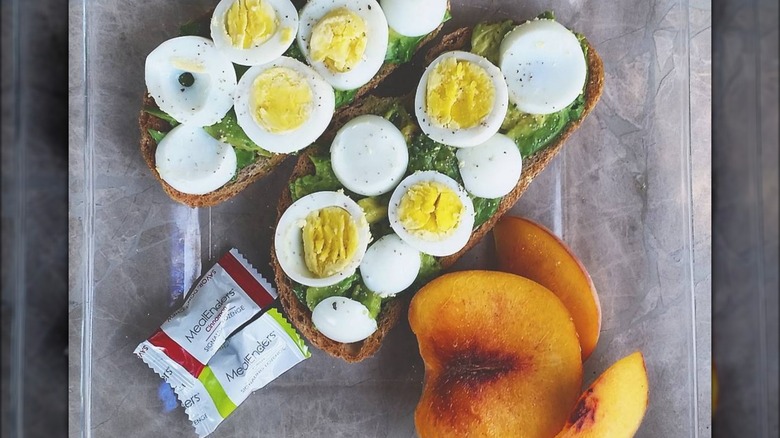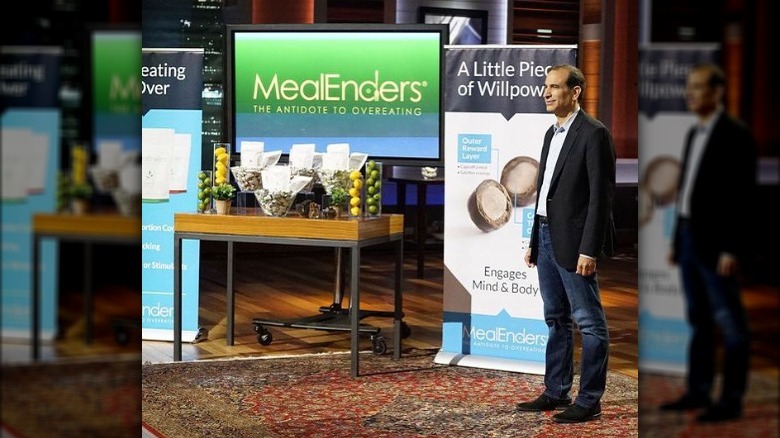MealEnders: Here's What Happened After Shark Tank
Before creating the weight loss lozenge that would eventually put him on "Shark Tank," Mark Bernstein looked for a way to stop his own overeating. After a futile years-long search for a product that would help him shed a few pounds and stabilize his blood test results, the CEO began to research ways he could create a confection that would curb his appetite. He ended up creating MealEnders: a minty hard candy coated by a thin, sweet exterior meant to target consumers' minds instead of their stomachs.
MealEnders worked by overpowering the palate with a cool, almost overwhelming flavor once a meal ended. By the time a consumer finished sucking on a lozenge, the mind would have registered the body's sensation of fullness and the craving for more food would be gone. Bernstein explained this science to the Sharks — who consisted of Mark Cuban, Barbara Corcoran, Kevin O'Leary, Lori Greiner, and Robert Herjavec — during his presentation of the product.
What happened to MealEnders on Shark Tank?
During his debut on "Shark Tank," season 8, episode 19, Mark Bernstein sought $350,000 for an 8% share of his company. After his brief presentation, the CEO presented the judges with samples and revealed that he had sold $1.4 million worth of lozenges since opening sales a year and a half ago. Lori Grenier did not like the taste of the candies, and Kevin O'Leary went as far as to compare them to a "bad date." Barbara Corcoran called the product pricey but found that it did make her lose her appetite for more.
While Mark Cuban admitted that he liked the product, he didn't like that MealEnders hadn't gone viral and, at the time, was spending half its revenue on advertising. He was the first to go out, followed by Robert Herjavec immediately after. O'Leary gave Bernstein some consolation by saying he presented the first weight loss product on the show that didn't get "torn to shreds," but ultimately backed out due to not liking the minty core of the MealEnders. Grenier and Corcoran offered no deals as well, which left Bernstein without a winning offer from the Sharks.
MealEnders after Shark Tank
Despite the fact that Bernstein did not make a splash with the Sharks, MealEnders sales surged in popularity. In just three days after the episode aired, the company made over $400,000 dollars in revenue from 15,000 orders. The following year, MealEnders garnered approximately $5 million dollars — their highest annual revenue — and continued to make impressive sales after. This puts it as one of the more successful products that did not reach a deal on "Shark Tank," such as Copa di Vino and Kodiak Cakes.
While MealEnders sales skyrocketed, the company's products continued to get mixed reception from the public and even a few health professionals. On Amazon alone, the lozenges have divided customers; some users claimed that the product did help them fight cravings while others were less than impressed. A small self-reported study by the Stanford Prevention Research Center did find that many of its participants reported that they consumed fewer calories after a meal while on the product. On the other hand, some health professional officials questioned MealEnders, saying the product didn't work that differently from just snacking on another regular lozenge after a meal (per FastCompany).
Why did MealEnders go out of business?
Ultimately, MealEnders did not get brought to its knees by the public's mixed reception — in fact, the company has garnered over 39,000 followers and 40,000 likes just on Facebook. Instead, production issues ultimately brought sales to a halt, made only worse by the COVID-19 pandemic.
On November 8, 2021, MealEnders posted on social media that the company had run out of product due to staffing issues at the factories where the lozenges were made. This was a common problem during the years of the pandemic since a lot of manufacturers had to scale down their output in order to follow COVID-19 safety guidelines. Combined with distribution issues caused by lockdowns, travel restrictions, and a decreased workforce, many companies struggled to initially meet demands. That year, multiple partners of MealEnders had to delay and eventually cancel orders, which led to it putting an end to the sales of their lozenges — the company had hoped temporarily, but it has not updated its social media since that last post in 2021.
What's next for MealEnders' founder?
Despite the high demand from customers that MealEnders experienced before and after its debut on "Shark Tank," the company has not announced any plans to return to the market. After its last round of production issues in 2021, the company eventually shuttered its website and discontinued its Amazon stock. It has not posted anything on either Facebook or Instagram after that year, and its Linktree page largely consists of dead hyperlinks.
On LinkedIn, Mark Bernstein shared that his company earned almost $9 million in total online sales by the end of its run. He continues to work as a business consultant and publisher — the two jobs he held before and while he acted as CEO of MealEnders. He has not announced any new entrepreneurial projects as of yet otherwise.
Much like other discontinued products that previously appeared on Shark Tank, such as the gluten-free Uprising bread, you're not likely to encounter MealEnders products on even secondhand online sites like eBay. Some users on social media suggest using Zotz or Icebreaker candies as an alternative, as they are minty candies that similarly distract your mind after a meal.

